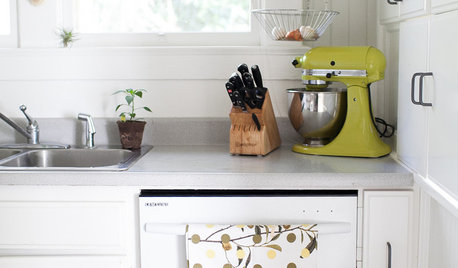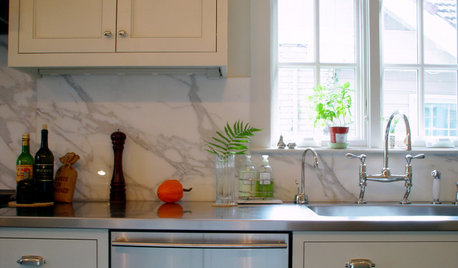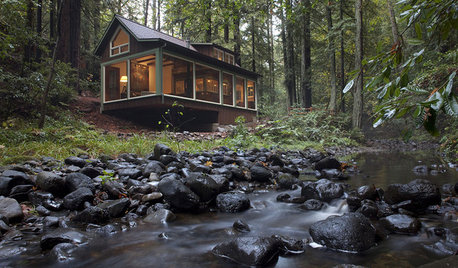additives to dishwashing detergent
illinigirl
12 years ago
Related Stories

HOUSEKEEPINGTackle Big Messes Better With a Sparkling-Clean Dishwasher
You might think it’s self-cleaning, but your dishwasher needs regular upkeep to keep it working hard for you
Full Story
HOUSEKEEPINGDishwasher vs. Hand-Washing Debate Finally Solved — Sort Of
Readers in 8 countries weigh in on whether an appliance saves time, water and sanity or if washing by hand is the only saving grace
Full Story
KITCHEN DESIGNHow to Keep your Dishwasher in Tip-Top Shape
As your dishwasher goes into overdrive, here are a few tricks for getting your plates, glasses and silverware sparkling clean
Full Story
CONTEMPORARY HOMESHouzz Tour: A Brave Addition Breaks New Ground
An Edwardian cottage gets a radical renovation with a dynamic deck that wraps a couple and 2 children in style
Full Story
KITCHEN DESIGNKitchen of the Week: Smart, Elegant Atlanta Addition
Controlling traffic flow and conquering clutter topped the priorities list for this 1980s-era Georgia kitchen
Full Story
MY HOUZZMy Houzz: 1955 Texas Ranch Moves On Up With a Modern Addition
Graphic tiles, wood accents, modern furnishings and a new second story help elevate a dated interior and layout
Full Story
HOMES AROUND THE WORLDKitchen Addition for a Historic Coach House and Cottage
Contemporary features complement period architectural details in this inviting room in Oxfordshire, England
Full Story
KITCHEN DESIGNWhere Should You Put the Kitchen Sink?
Facing a window or your guests? In a corner or near the dishwasher? Here’s how to find the right location for your sink
Full Story
HOUZZ TOURSHouzz Tour: A Creekside Cabin Opens to the Views
With a modern addition featuring expansive windows, a rustic 1930s cabin opens its arms wider to its Northern California woodland setting
Full Story
REMODELING GUIDESAdding On: 10 Ways to Expand Your House Out and Up
A new addition can connect you to the yard, raise the roof, bring in light or make a statement. Which style is for you?
Full Story






dadoes
jakkom
Related Professionals
Henderson Kitchen & Bathroom Designers · Pleasanton Kitchen & Bathroom Designers · Schenectady Kitchen & Bathroom Designers · United States Kitchen & Bathroom Designers · Eagle Kitchen & Bathroom Remodelers · Ewa Beach Kitchen & Bathroom Remodelers · Hickory Kitchen & Bathroom Remodelers · Idaho Falls Kitchen & Bathroom Remodelers · Lincoln Kitchen & Bathroom Remodelers · Park Ridge Kitchen & Bathroom Remodelers · Spanish Springs Kitchen & Bathroom Remodelers · Vista Kitchen & Bathroom Remodelers · Berkeley Heights Cabinets & Cabinetry · Los Altos Cabinets & Cabinetry · Sunrise Manor Cabinets & Cabinetryalwaysfixin
dadoes
writersblock (9b/10a)
dadoes
weissman
writersblock (9b/10a)
sparky823
dadoes
weissman
dadoes
sjerin